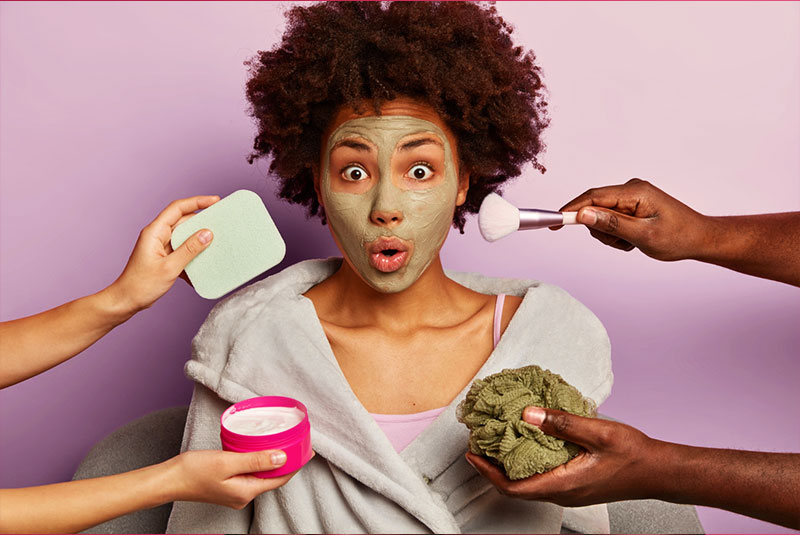In the vast and often confusing world of skincare, myths and misconceptions abound. With a plethora of advice from social media influencers, beauty bloggers, and well-meaning friends, it’s easy to fall prey to skincare myths that can do more harm than good. It’s time to debunk these myths and separate fact from fiction to ensure that your skincare routine is based on solid science and not on old wives’ tales.
Myth #1: Expensive Products Are Always Better
One of the most pervasive myths is that the higher the price tag, the better the product. This couldn’t be further from the truth. The efficacy of a skincare product is not determined by its price but by its ingredients and how well they work with your skin type. Many affordable products contain the same active ingredients as their high-end counterparts and can be just as effective.
Myth #2: You Don’t Need Sunscreen on Cloudy Days
Contrary to popular belief, UV rays can penetrate clouds and cause skin damage. Whether it’s sunny or cloudy, if you’re going outside, you should apply sunscreen to protect your skin from harmful UV rays.
Myth #3: You Can Shrink Your Pores
Pores do not change size. They may appear larger due to factors like sebum buildup, dead skin cells, or aging, but they are a fixed feature of your skin. Proper cleansing and exfoliation can help minimize their appearance, but they will not physically shrink.
Myth #4: Oily Skin Doesn’t Need Moisturizer
Even if your skin is oily, it still needs hydration. Skipping moisturizer can actually cause your skin to produce more oil to compensate for the lack of moisture. Look for oil-free, non-comedogenic moisturizers that won’t clog your pores.
Myth #5: You Can Apply Too Much Sunscreen
While it’s true that a little goes a long way, you can’t apply too much sunscreen. Most people don’t use enough to get the full SPF protection advertised on the bottle. To get the labeled SPF, you need to apply about 1 ounce, or enough to fill a shot glass, to your body.
Myth #6: Natural Is Always Better
Just because a product is natural doesn’t mean it’s better or safer for your skin. Some natural ingredients can cause irritation or allergic reactions. Conversely, some synthetic ingredients are perfectly safe and effective. The key is to choose products that work well with your skin, regardless of whether they’re natural or synthetic.
Myth #7: You Can Rub Out Wrinkles
Rubbing or massaging your skin vigorously will not reduce wrinkles. In fact, it can cause more damage by stretching and irritating the skin. Gentle massage can improve circulation and give your skin a temporary glow, but it won’t eliminate wrinkles.
Myth #8: You Can Target Cellulite with Creams
Cellulite is a normal condition where fat pushes up against the connective tissue beneath your skin, resulting in a dimpled appearance. Topical creams cannot penetrate deep enough to affect the structure of fat and connective tissue. While some creams may temporarily improve the appearance of cellulite, there is no cure-all cream that can eliminate it.
Myth #9: You Should Steam Your Face to Clean It
Steaming your face can actually cause more harm than good. It can strip your skin of its natural oils, leading to irritation and an overproduction of oil. If you have sensitive skin or rosacea, steaming can exacerbate these conditions.
Myth #10: You Can Exfoliate Every Day
Daily exfoliation can be too harsh for most skin types, leading to irritation, redness, and a compromised skin barrier. It’s generally recommended to exfoliate two to three times a week, depending on your skin’s sensitivity and needs.
In conclusion, skincare should be a personalized and evidence-based approach. By debunking these common myths, you can create a skincare routine that is effective, safe, and tailored to your skin’s unique requirements. Always consult with a dermatologist if you have specific skin concerns or conditions to ensure you’re using the best products and practices for your skin.
